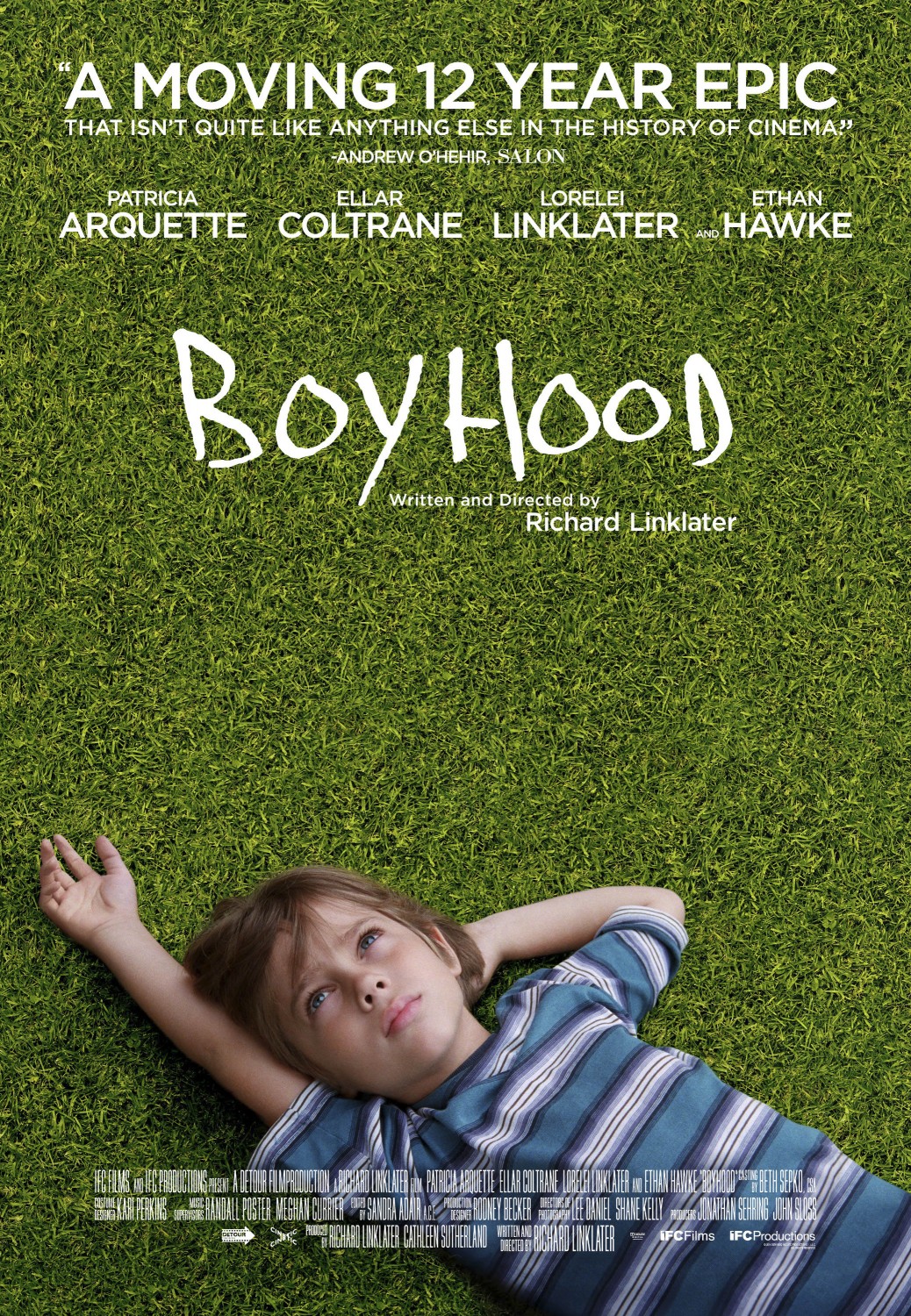While not so chock-full of hubris that I consider myself a movie critic of the same ilk as the esteemed Peter Travers or A.O. Scott, I have somehow managed to log almost 500 reviews over the past five years—so I’ve been at least partway around the block. Generally I find myself a consensus kind of guy—rarely (if ever) going against the grain: Like many, I’m not a fan of Adam Sandler films, I live for the fall and early winter months when the critics’ darlings hit the screen, and if I sing the praises of widely disparaged dreck like the Transformers franchise I do so only because I “get” that it was made for a certain audience. Pretty universal ideology there.
But I’ll be damned if I can understand all the fuss being made about Richard Linklater’s Boyhood.
Right now it sits at 99% on Rotten Tomatoes, and it is currently (according to a whole slew of industry insiders) the clear favorite for this year’s Best Picture Oscar.
Clearly I’m missing something.
First things first (for those of you not “in the know”), the creativity it took to put Boyhood together is at once both mind-boggling and astoundingly simple (in theory). Linklater came up with the brilliant idea of filming over the course of 12 years, shooting about 15 minutes of the movie at a time. At its core, it’s the story of a boy named Mason (Ellar Coltrane), who we watch grow up from age 6 to 18. No special effects, no re-casting as the actors get older, none of that—Boyhood is an almost documentary-style look at a young man growing up. It’s so fascinating in fact, that when the movie was over I went back and watched the first few scenes again, to get an even better grasp of Coltrane’s growth and transformation. And it’s astonishing.
The concept is so simple that it’s surprising no one else has thought of it before. But then you realize the incredible gamble Linklater took in putting the project together, and you can understand why no one has. Not only are you rolling the dice on the fact that none of the actors will quit (Linklater’s own daughter Lorelei, who plays Mason’s sister, actually had to be talked down from the ledge after a few years, telling her father she just wanted her character to be killed off), but you’re also taking a risk that the little boy you cast at age six would grow up to be a half-way decent actor and be able to carry the movie. Spoiler alert: he doesn’t. The adult leads in the film, however, are played by Patricia Arquette, as Mason’s mom, and Ethan Hawke as the estranged dad. Both are rock-solid and turn in excellent performances, and I doubt either had misgivings along the way.
On paper, too, Linklater had years (and years) to put his screenplay together. Of course he had a rough outline in place when filming began, but there was plenty of opportunity to fine-tune the story and even make a minor course-correction or two along the way… which is why I find it so confounding that there’s no, well, plot.
For almost three hours, we’re asked to just sit and watch as a little boy becomes a young man. There’s very little conflict along the way (aside from mom going through a divorce, teen Mason having girlfriend problems, etc.), and the story never really becomes an actual story. I mentioned “documentary-style” earlier, because that’s what Boyhood ends up being. If you’re a parent, imagine picking a random fifteen minutes out of your kid’s life every year and then editing all those bits together into a movie. Presto.
Again, I’ll freely admit that I must be missing something, and I would (if I could) gladly vote Linklater as the Best Director this year—based solely on the ingenious idea, the time commitment involved, and the inherent risk. But Coltrane’s lackluster acting skills, the meandering script, and the overall sense that a really (and I mean really) cool idea is all that’s required to carry a movie—they all keep me from joining my pseudo-fellow critics. Frankly, I wouldn’t even put Boyhood in my Top Ten for the year, much less hand it the Best Picture Oscar.
3.5/5 stars
